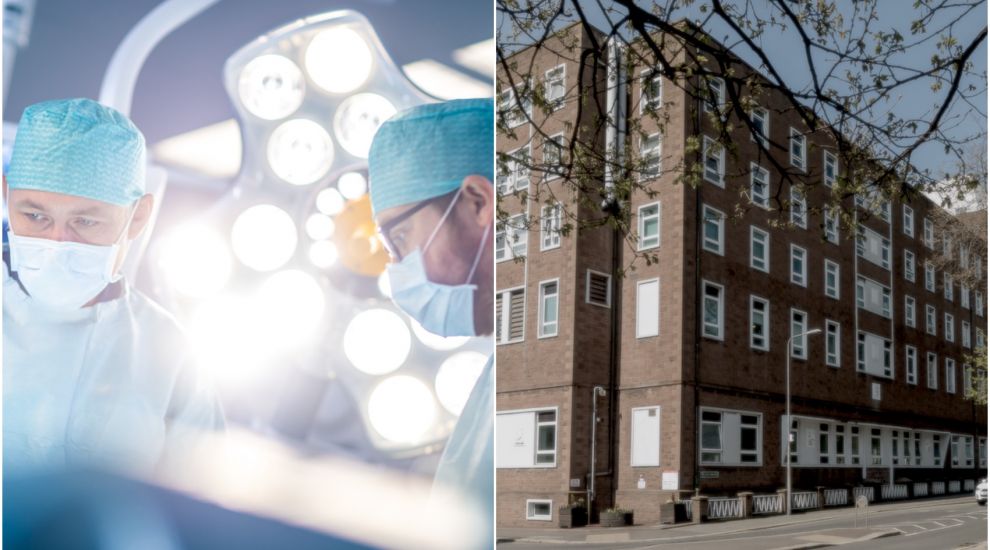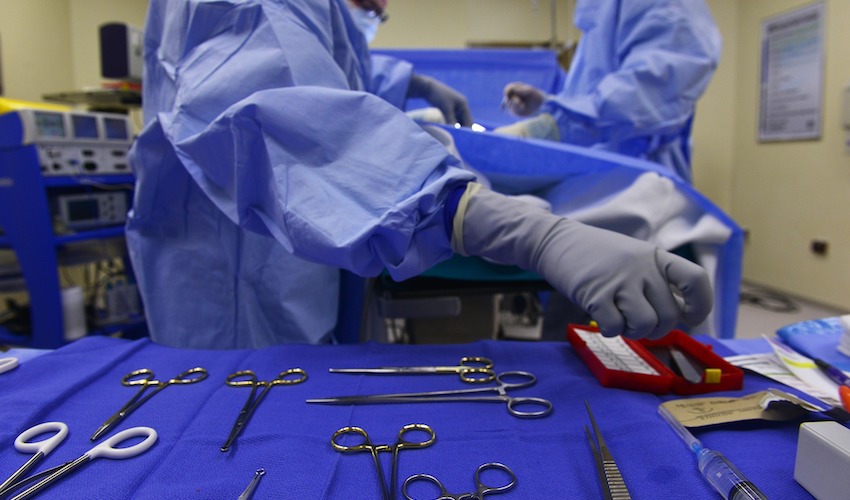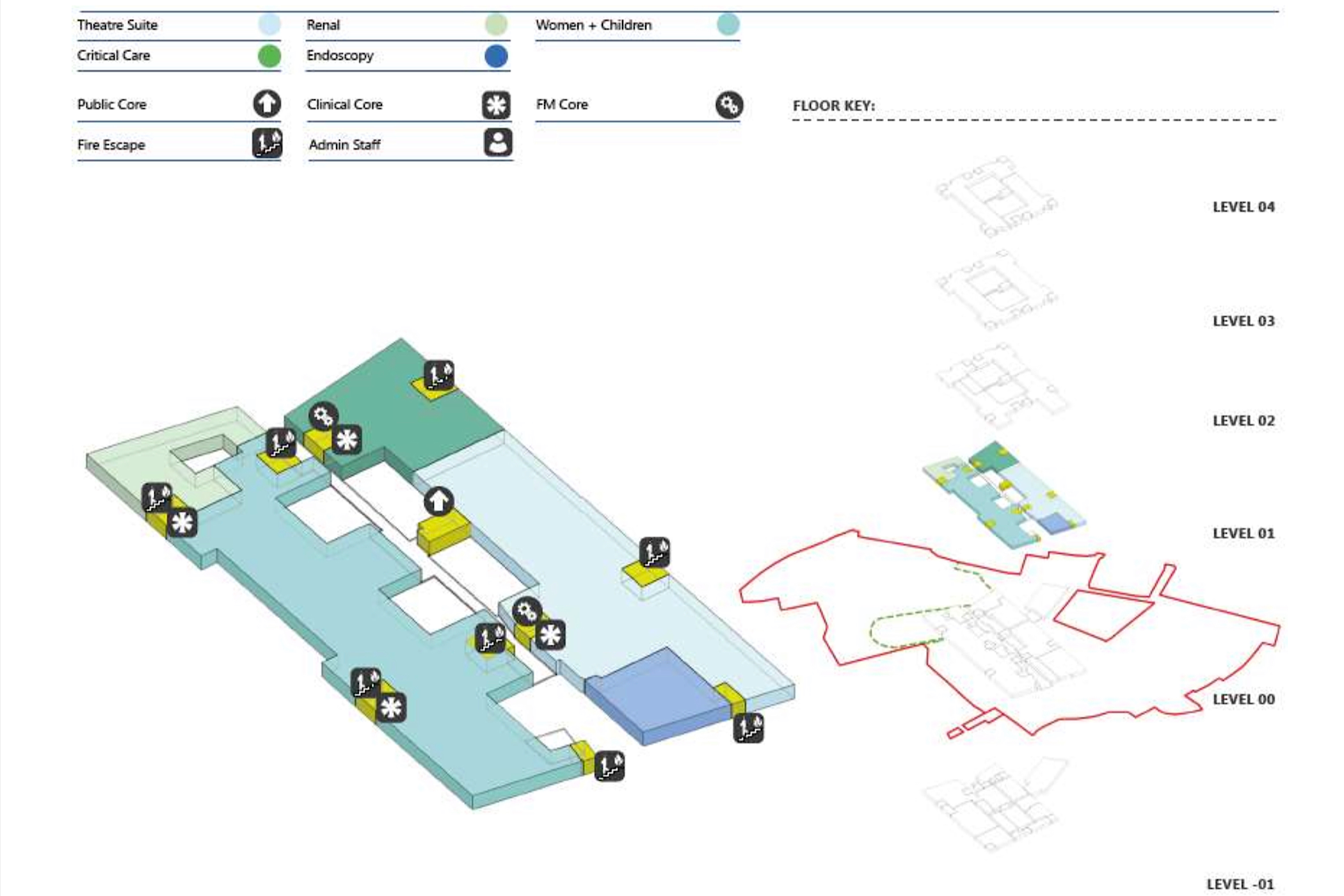


Operating theatres are often left lying empty at the hospital due to poor planning, pushing up waiting times for patients, it has emerged.
Available medical theatre space in Jersey went unused more than a quarter of the time throughout the year between June 2020 and June 2021.
The finding, which came as part of an initially withheld Quality and Performance report for Health and Community Services released last week following challenges from Express, showed that theatre usage rates were “below the industry standard.”
There was not a single month between June 2020 and June 2021 where the 85% benchmark was met - since elective surgeries started again following lockdown, usage has been between 63.4% at its lowest and 73.3% at its highest.
Its for that reason that Health heads - who admitted the service "absolutely isn't where it needs to be" - have marked improving theatre use as one of their top three priorities.
Impact on waiting lists
The impact of the poor theatre utilisation rates, alongside staffing issues, is reflected in the waiting times documented in the report.
As of June 2021, there were 2,808 adults on the elective surgery waiting list, and 73 children.
During the same month, 42.2% of patients had also been waiting more 90 days for an elective admission.
This was far above the target of 25%, which was not hit in any month in the year leading to June 2021.
The key issue, HCS Director General Caroline Landon told Express, is that planning processes are not up to scratch.
"A lot of the challenges around utilisation actually happen outside of theatres, because we haven't got our processes where they need to be," she explained.
These processes, she said, include "scheduling our patients appropriately, ensuring our patients have their pre-operative assessments in a timely manner, ensuring that we have all the right equipment in place in our theatres, so we can ensure we are maximising our precious theatre time."
Elaborating, she said: "...It isn't that we don't have the equipment, but it's a bit chicken and egg.
"If we don't get our scheduling right, then we don't know what to expect on the table, so we don't always have the right equipment ready for the right procedure, because we haven't scheduled appropriately."
To help remedy these scheduling problems, Ms Landon said there is now a 'Theatres Task and Finish Group' chaired by herself.
The HCS performance report also noted that funding would be provided to specialities with the longest waiting times.
Among them is the Ophthamology Department which, as Express reported last week, has been granted funding to recruit more staff to ease pressures resulting in a waiting time of at least five months for surgery for cataracts - a condition that rapidly worsens over time and can result in blindness.

Pictured: HCS Director General Caroline Landon said part of the issue with theatre usage is getting the right equipment in the right place at the right time.
The hospital has also now introduced a what Ms Landon described as a "6-4-2 process".
This means appointments are scheduled at six weeks, a date 'locked down' at four weeks, and locked down "completely" at two weeks.
She said the hospital is also looking at a new 'Theatre Direct' service.
"Instead of patients coming and having to sit on our wards unnecessarily and then having to come down to theatre.
"...You walk into the theatre yourself, you have your procedure, you walk out to an admissions unit where you'll able to recover and go home."
It's also hoped that, should it get the green light, the new hospital will bring about more efficient use of theatre space.
The Jersey Care Model estimates that six operating theatres will be needed, but designers are planning for around eight - one of which will be used for image-guided surgeries, one for ophthalmology and another for emergency and trauma.
All will be equipped with infrastructure to support keyhole surgery and robotics.

CLICK TO ENLARGE: An outline of the plans for the first floor of the new .
It's hoped that time and money will be able to be saved through better 'clinical adjacencies' - making sure that the hospital is laid out in a common-sense way that allows patients, staff and equipment to move swiftly and easily from one zone to another.
Initial proposals for the new hospital at Overdale show that a theatre suite is planned for the first floor, above the Emergency Department and Radiology.
Sitting alongside the theatres would be the Women and Children’s centres, Critical Care, Endoscopy, and a renal section.
INSIGHT: Inside the Health Performance Report...
"This data belongs to our patients, not to us"
Withheld hospital report inches out into the open
Health withholding key performance report due to media mistrust
Funding injection to clamp down on cataract waiting times
Hospital staff shortages force surgery cancellations
Comments
Comments on this story express the views of the commentator only, not Bailiwick Publishing. We are unable to guarantee the accuracy of any of those comments.